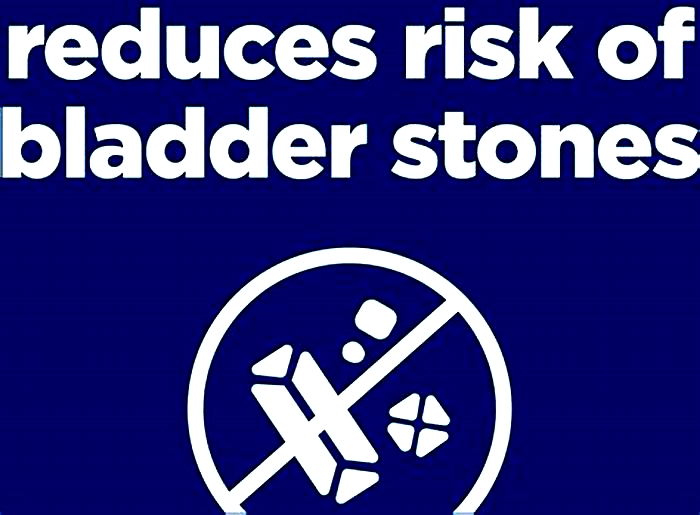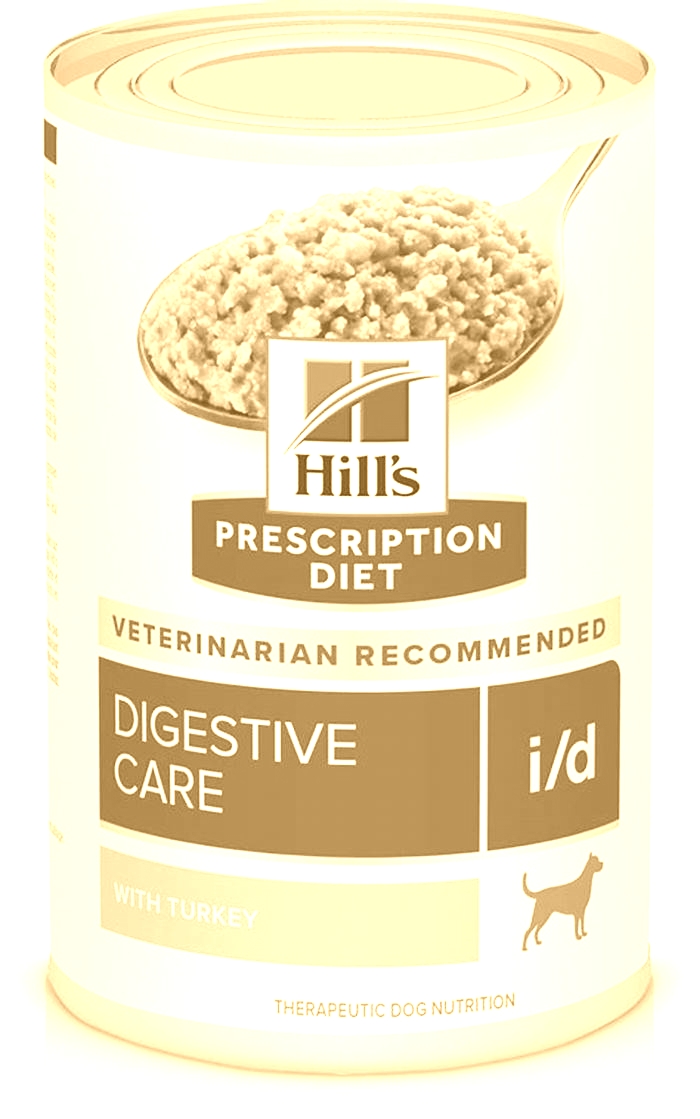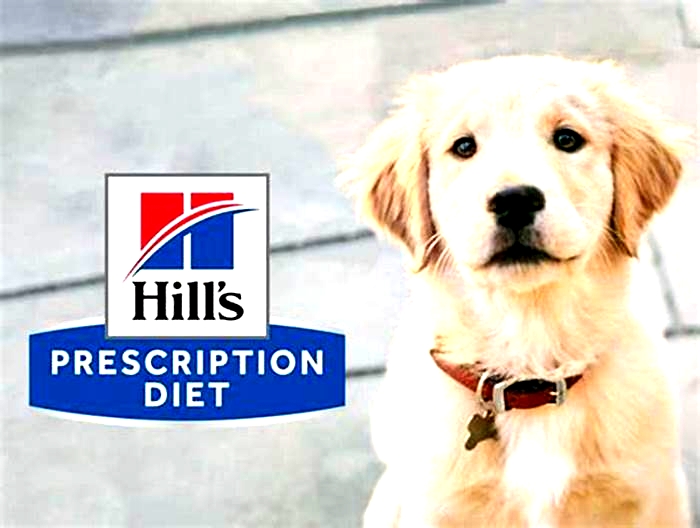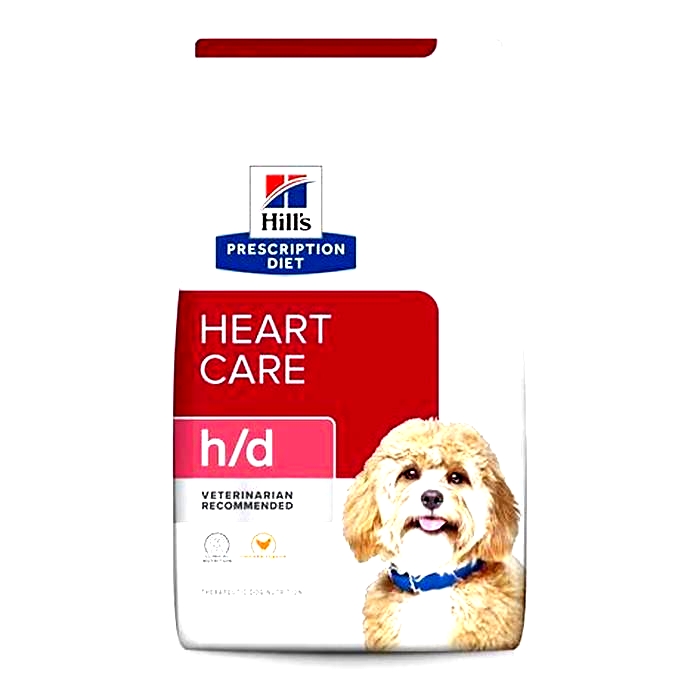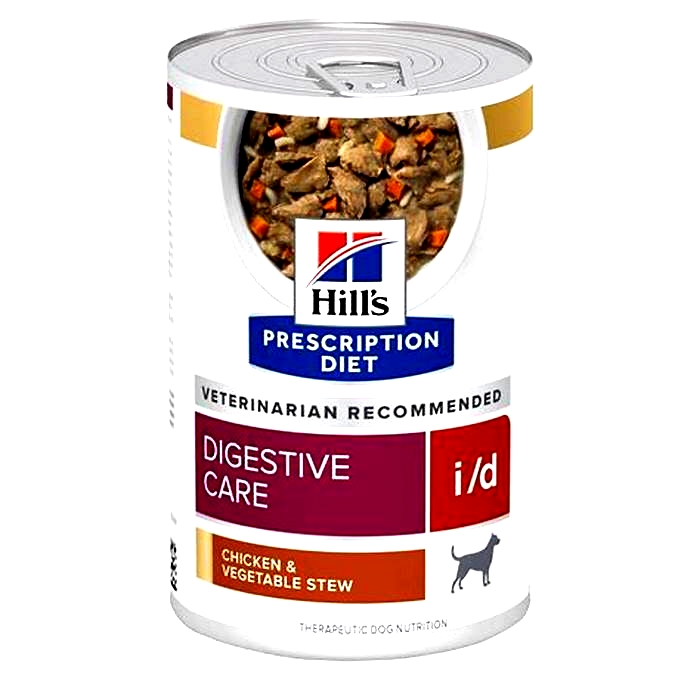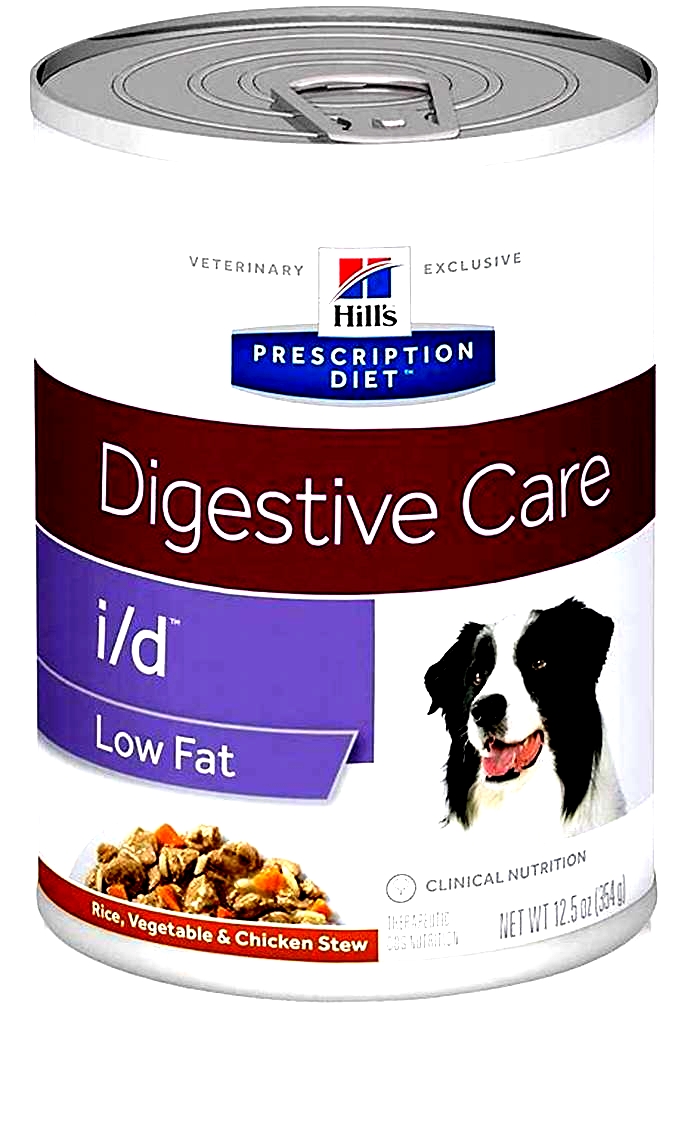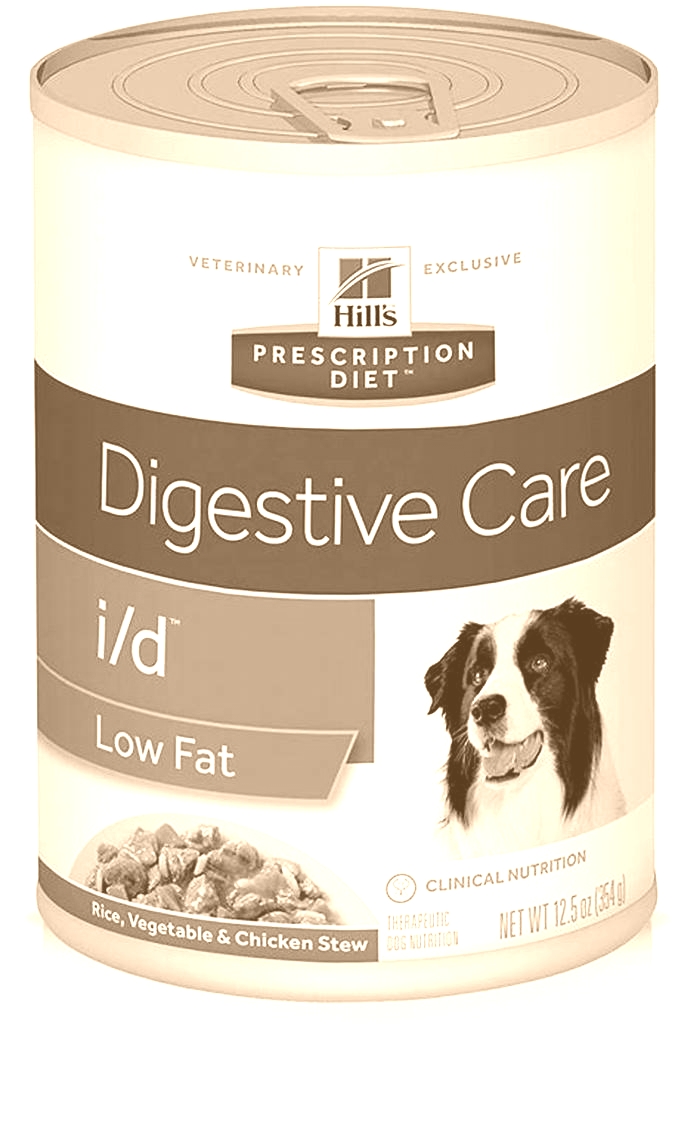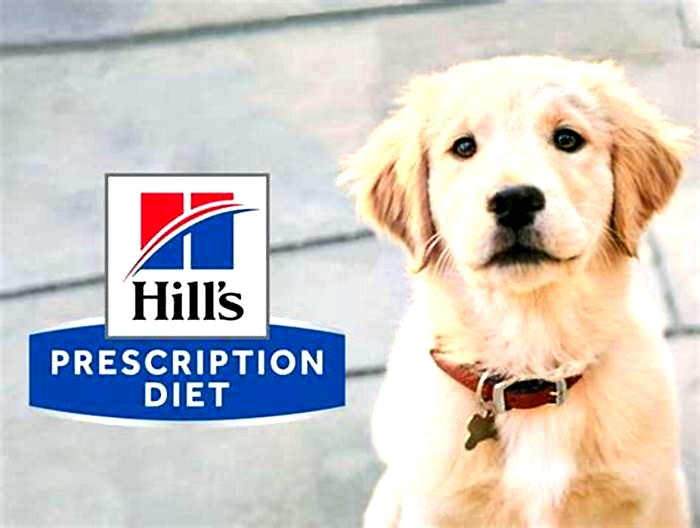Why do I need a prescription for Hill s dog food
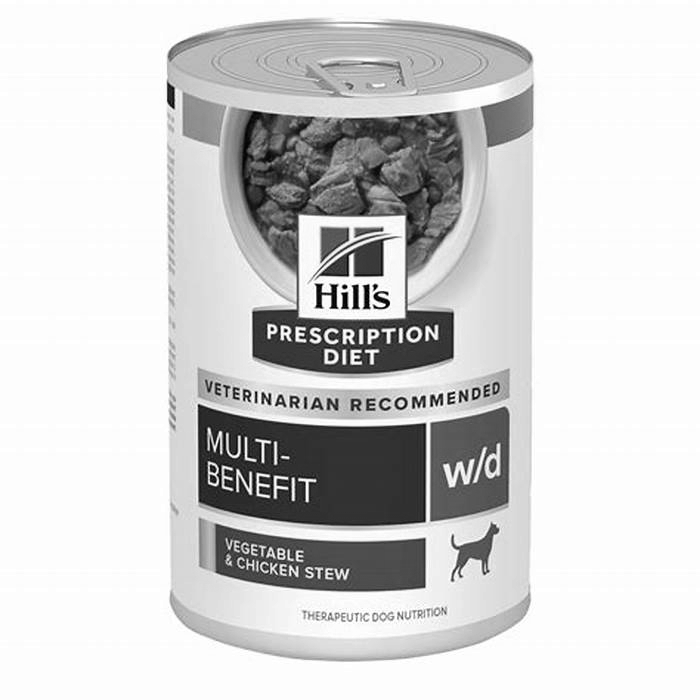
Why do you really need a prescription for your dogs food? just follow the money!
By Deb Dempsey
Did you know that the Prescription Diet (Prescription Diet is a registered trademark of Hills Pet Nutrition, Inc.) your veterinarian prescribed for your dog doesnt really require a prescription in the true sense of the word? Im willing to bet that most consumers and perhaps even some vets are unaware that there are no special ingredients inside these diets that are regulated by the FDA or DEA (Drug Enforcement Administration), requiring an official prescription.
In the dog food world, the term Prescription Diet describes an effective marketing agreement between a hundred-million dollar pet food manufacturer and the veterinarian community. This agreement allows for the sale of their foods through licensed veterinarians only. Veterinarians benefit because they can achieve a much higher mark-up on these foods than they would by offering foods widely available without a prescription. The pet food manufacturer, in return, gains credibility as a manufacturer of veterinarian-recommended food and uses that as an endorsement, if you will, for the rest of their products. Win-win, right?
Just to clarify... Scott Ziehr, Feed Program Regulatory Specialist for the Colorado Department of Agriculture, told me that, No, there are no specific regulations for prescription feeds beyond the regulations in place for commercial animal feed. The Federal Food, Drug, and Cosmetic Act does require that pet foods, like human foods, be pure and wholesome, contain no harmful or deleterious substances, and be truthfully labelled. When I pressed Mr. Ziehr as to whether he felt these prescription diets were truthfully labelled, he responded that this was not a question anyone had ever asked before and that it could be subject to interpretation. He then referred me to Dr. Sharon Benz, Deputy Director for the Office of Surveillance and Compliance at the CVM (Center for Veterinary Medicine) within the FDA. While I was unable to speak with Dr. Benz, Laura Alvey, Deputy Director, Communications Staff CVM, weighed in with this statement: Prescription diet is an industry-coined term and holds no legal meaning.
A Brief History of The Prescription Diet
Dr. Mark Morris, Sr. created the first Prescription Diet in the late 1930s. Dr. Morris was a Cornell-educated veterinarian who worked with the American Humane Association to develop a meat-free diet, necessary to feed dogs amidst food rationing during World War II. Pets do not need fresh meat, but can get their protein from rejected eggs, unsalable fish, soybeans, or even sour milk, he explained in his biography, Mark Morris Veterinarian, written by Willard Haselbush in 1984 (pg. 88). Once the war ended, many pet food manufacturers began creating diets higher in animal proteins, more in keeping with the dietary needs of carnivores, i.e. meat-eaters. Dr. Morris, however, stuck to his previous formulations, explaining that, when I remember in wartime thousands of dogs in this country were kept alive and healthy on diets of cooked cereals and vegetables fortified with soybean meal, the effort to lure the American public into feeding pets an all-meat diet consisting of meat by-products is ridiculous (Haselbush, 89). Interestingly, many of the Prescription Diets today contain animal by-products.
Dr. Morris developed a variety of Prescription Diets including r/d (r/d is a registered trademark of Hills Pet Nutrition, Inc.), a formula designed to reduce a dogs weight. These dogs are around the house a lot and are often fed bits of candy and other sweets as a snack or reward. Fatness is a natural result. This presented a real research problem: How to create a diet that would be palatable, fill up the stomach, provide very little real nourishmentand still not create a diet deficiency disease, Dr. Morris lamented in his biography (Haselbush, 144). He found the solution in pulverized cellulose, also known as wood pulp or sawdust, which is still a major ingredient in r/d today. One has to wonder why he went to the trouble to create a dog food based on sawdust instead of suggesting that the pet owner cut back on the amount of candy they gave their pet.
An informal price survey amongst veterinarians selling 30-pound bags of Prescription Diet r/d (weight reduction) found the average price to be $61.00 or $2.03/lb. Alternatively, a 40-pound bag of Hills Science Diet Adult Light with similar ingredients and guaranteed analysis statements cost $43.99 or $1.09/lb. From a laypersons viewpoint, both foods (containing corn, chicken by-products, and cellulose) seem to be used for similar goals, yet the formula available only through licensed veterinarians costs nearly twice as much.
Elaborate Marketing Plans Ensure Veterinary Cooperation
In addition to creating pet food to address specific health issues, Dr. Morris also created a detailed and very successful marketing plan to gain credibility within the veterinary community. His daughter Ruth was hired to disseminate knowledge about k/d, p/d (k/d and p/d are registered trademarks of Hills Pet Nutrition, Inc.) and the foundation among veterinarians, to encourage a favourable image among them and to develop a whole new area of professional and public relations as it may relate to veterinarians, which was explained in Dr. Morris biography (Haselbush, 171). With the help of a public relations firm, they created the Student Agent Program, designed to indoctrinate promising young veterinary medical students to act as liaisons to help educate their young, impressionable classmates about these diets.
Dr. Michael W. Fox, co-author of Not Fit for a Dog! The Truth About Manufactured Dog and Cat Food, explained it this way: Until recently, vet students in the U.S. and other countries were taught cat and dog nutrition by veterinarians employed by pet-food companies. Now more schools have staff teaching a short course in companion animal nutrition, but only too often their research and lectureships are funded by pet food manufacturers.
Surely, Not Every Vet Buys Into This Marketing Strategy
Dr. Paula Terifaj, a holistic veterinarian in Orange County, owner of Founders Veterinary Clinic and author of How to Feed Your Dog if You Flunked Rocket Science, recalled being courted by" pet food companies in vet school: It was conveyed to us that people are too stupid to cook for themselves, she says. As most veterinarians do, she utilized Prescription Diets in her practice initially. In 1999, however, she had a light bulb moment when she came across a book written by one her favourite professors, Dr. Donald Strombeck, entitled, Home-Prepared Dog and Cat Diets: The Healthful Alternative, which is still available today on Amazon.com. His advice set her on a journey that changed her practice forever. Today, Dr. Terifaj operates a holistic practice and encourages her clients to cook for their dogs. She feels that the manufacturer of Prescription Diets uses substandard ingredients and then fortifies the hell out of their formulas.
Dr. Judy Jasek, a holistic Veterinarian in Englewood, Colorado also bought into the Prescription Diet mantra early on in her career. It was just the way we were taught, she recalled. Sales reps were always coming in telling us how wonderful their foods were. As she began to educate herself on nutrition, she slowly began to phase them out of her practice. Almost all are corn-based and there is no real nutrition in them. They are so highly processed and contain lots of by-products.
Dr. Michael Fox, Veterinarian, author, and former Vice President of the Humane Society of the United States, sums it up: Vet students and practicing veterinarians alike believe the science behind manufactured pet food formulations is sound. But as we (Drs. Fox, Hodgkins and Sharp) show in Not Fit for a Dog; The Truth About Manufactured Cat and Dog Foods, the science is seriously flawed and trumped by the bottom line of lowest-cost ingredients and maximizing profitability. Pet owners must realize that manufactured pet foods and the spin-off prescription diets are part of the agribusiness food and drug industrial complex that profits from recycling food and beverage wastes into pet foods and livestock feed, putting animal health and wellbeing at risk in the processA More Natural ApproachSo what is a pet owner to do if their dog develops kidney disease, urine crystals, or any other diseases that these diets would normally be prescribed to treat?
Dr. Terifaj first suggests first verifying that the dog does indeed need a special diet. She feels that often times a dog is on the fence and the easiest thing for a veterinarian to do is to suggest a Prescription Diet. Instead, she often turns to a Web site, www.AnimalDietFormulator.com. This Web site provides recipes at a nominal charge to pet owners interesting in cooking their own food. In addition, vets can log in at no charge and request diets designed to treat specific diseases. She suggests asking your vet to do so for you if he or she is adamant about a specific diet. Not only will this be a cheaper alternative, but Dr. Terifaj feels it is a much healthier approach to feed real human food.
Dr. Fox also prefers to feed a biologically appropriate, whole-food diet to his patients and offers recipes on his Web site www.twobitdog.com/drfox. He points out that many of the so-called prescription diets are highly unpalatable and are lacking in essential nutrients. Veterinarian Deva Khalasa, VMD, in her new book Natural Dog: A Holistic Guide for Healthier Dogs, has some excellent home-prepared diets for dogs with various chronic ailments from cancer to diabetes.
If a veterinarian wont budge from the idea of a Prescription Diet, it may be time to locate a holistic veterinarian for second opinion.
The next time your veterinarian suggests a diet for your four-legged child that youre not comfortable with, dont hesitate to ask questions. A good veterinarian, traditional or holistic, will welcome that discussion and encourage you to look at all the options available.
Haselbush, Willard C., Mark Morris Veterinarian, R.R.Donnelley & Sons Company, 1984.
Today, Hills Pet Nutrition, inc., owned by toothpaste giant Colgate-Palmolive, is involved in widespread marketing efforts designed to reach veterinarians at all stages of their career. This approach is remarkably similar to the marketing efforts in the toothpaste industry, courting and then touting a dentists endorsement.
Hills Pet Nutrition, Inc.
- offers scholarships for veterinary students
- offers educational grants for veterinary schools
- funds continuing education programs for licensed veterinarians
- maintains the Hills vet school graduate feeding program, providing food to students at no charge that they can resell for a profit
- creates a nutrition curriculum provided to vet schools all over the world
- distributes Small Animal Clinical Nutrition textbook to vet students
- is a sponsor of the American Veterinary Medical Association (AVMA), of which Dr. Mark Morris, Sr. was once president
- is a founding sponsor of the National Commission on Veterinary Economic Issues
- is a founding sponsor of the American Animal Hospital Association, of which Dr. Mark Morris, Sr. was the first president
- sponsors the American College of Veterinary Internal Medicine
- sponsors the North American Veterinary Conference
- sponsors the Western Veterinary Conference
- sponsors the Student American Veterinary Medical Association
- sponsors the Veterinary Business Management Association
- sponsors the International Veterinary Student Association
- is a member of the World Small Animal Veterinary Association
- self-professes to be one of the largest employers of veterinarians worldwide
- regularly takes its competitors to court, challenging their marketing claims
For more information: Deb Dempsey Mouthfuls Pet Boutique4224 Tennyson St.Denver, CO 80212(720) 855-7505www.mouthfuls.net email: [email protected]
Should You Feed Your Pet Prescription Dog Food? Here's When It's a Good Idea
The line dividing food and medicine can be fuzzy. When you eat a handful of raspberries, youre providing your body with important nutrients and antioxidants. A piece of salmon contains a lot of protein, but its also high in omega-3 fatty acids that can reduce inflammation.
Pet food manufacturers have taken the idea of food as medicine a step furtherby designing products to help manage a wide variety of diseases. These foods are available only with a veterinarians prescription because they can do harm when used under the wrong circumstances.
Heres what you need to know about prescription dog food.
What Is Prescription Dog Food?
Prescription dog foods (also called therapeutic dog foods or veterinary diets) are made with ingredients and nutritional supplements combined in just the right proportions to support the health of dogs who have a particular disease or illness.
For example, a veterinarian might prescribe prescription dog food for a dog with arthritis that contains high levels of omega-3 fatty acids and antioxidants to reduce inflammation, glucosamine and chondroitin sulfate to protect joint cartilage, and added L-carnitine (an amino acid) to keep muscles strong.
Before a prescription dog food can be sold, the manufacturer must put it through extensive testing to show that its safe and effective for dogs with specific diseases. Manufacturers also adhere to rigorous safety and quality control standards when making these special diets. All of this helps ensure that prescription dog foods are worth the extra money.
When to Start a Prescription Dog Food Diet
Many health problems in dogs can be managed, at least in part, through their diet. A veterinarian familiar with the specifics of a dogs case is in the best position to determine if a prescription dog food is appropriate. Talk to your veterinarian about prescription dog food if any of the following apply to your dog.
1. Your Dog Needs to Lose Weight
Extra body fat makes life shorter and less enjoyable for overweight dogs. It can cause or make many health problems worse, too, including:
If your dog is only a little overweight, an over-the-counter diet dog food, such as Hill's Science Diet Adult Perfect Weight, may help. But dogs who need to lose a lot of weight tend to do better on a prescription weight loss food.
Different diets seem to work better for different dogs, but most vet-recommended prescription dog foods combine increased fiber to help dogs feel full without adding calories, moderate or high protein to maintain muscle, and low levels of carbohydrates and fats. Good options include
Your veterinarian can design a weight loss plan tailored to your dogs individual needs, help you monitor how its working, and make necessary changes as your dogs body condition changes.
2. Your Dog Has Bladder Stones
Symptoms of bladder stones in dogs include bloody urine, straining to urinate, and discomfort. Some types of bladder stones can be dissolved with prescription dog foods or medicine, while others need to be physically removed via surgery or other treatments. But an appropriate diet can almost always reduce the chances that bladder stones will return.
For dogs who are prone to bladder stones, wet foods are usually preferable to dry because they help keep the dogs urine dilute, which reduces the chances that stones will form. Royal Canin Veterinary Diet Adult Urinary SO and Hill's Prescription Diet c/d Multicare dissolve struvite stones and help reduce the formation of struvite and calcium oxalate stones. Hill's Prescription Diet u/d Urinary Care helps dissolve and prevent the recurrence of urate and cystine stones.
Your veterinarian can determine what type of bladder stones your dog has and how they should be treated.
3. Your Dog Has Kidney Disease
Dogs with chronic kidney disease can live for many months (or even years!) with appropriate treatment. Prescription dog foods for kidney disease can be an important part of therapy.
These diets usually contain a moderate amount of high-quality protein and are low in phosphorous and sodium to reduce the workload on the kidneys. Omega-3 fatty acids, essential amino acids, vitamins, minerals, and antioxidants may all be supplemented to promote kidney function and overall health and wellness. Whenever possible, dogs with kidney disease should eat wet dog food to help prevent dehydration.
Because dogs with kidney disease often have a reduced appetite, its important to find a kidney diet that your dog enjoys eating. You might need to try several options before finding the one that works best for your dog. Some go-to's include:
5. Your Dog Has Arthritis
Arthritis is very common in dogs, particularly as they get older. Combining different forms of treatment, including diet, can decrease a dogs discomfort and increase their mobility.
Therapeutic dog foods that veterinarians prescribe to dogs with arthritis are usually enriched with omega-3 fatty acids, glucosamine, chondroitin sulfate, and antioxidants to reduce inflammation and promote joint health. These foods are also often slightly calorie-restricted to help dogs stay slim and supplemented with L-carnitine, an amino acid that helps dogs build and maintain muscle. Hill's Prescription Diet j/d and Purina Pro Plan Veterinary Diets JM Joint Mobility are both excellent prescription foods for dogs with arthritis.
And these arent the only conditions that can be managed with prescription dog food! For example:
If you think your pet could benefit from prescription dog food, talk with your vet.
How to Transition Your Dog to Prescription Food
If your veterinarian has recommended prescription dog food, your next question is probably how to switch to the new diet. In most cases, its best to make the transition slowly.
Gradually mix increasing amounts of the new food in with decreasing amounts of your dogs old diet over a week or two. This gives your dog a chance to get used to the taste of the new food and gives their GI tract time to adapt. Go even more slowly if your dog is finicky or initially turns up their nose at the new food.
But there are times (when youre dealing with a food allergy or intolerance, for example) when your veterinarian may recommend making a quick transition to a new food, so always follow your vets instructions. If you cant get your dog to eat their new prescription diet, talk to your veterinarian about other options that may be available.
Prescription dog foods can reduce and sometimes even eliminate the need for a dog to be on medications or receive other forms of treatment. Ask your vet how diet can play a role in your dogs healthcare.
Featured Image: iStock/Chalabala
WRITTEN BY
Jennifer Coates, DVMVeterinarian
Dr. Jennifer Coates is an accomplished veterinarian, writer, editor, and consultant with years of experience in the fields of veterinary...

